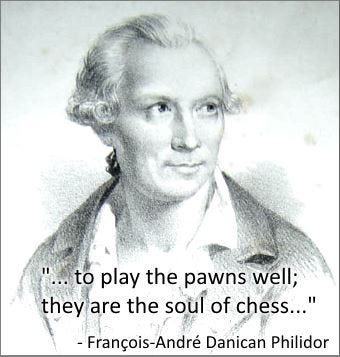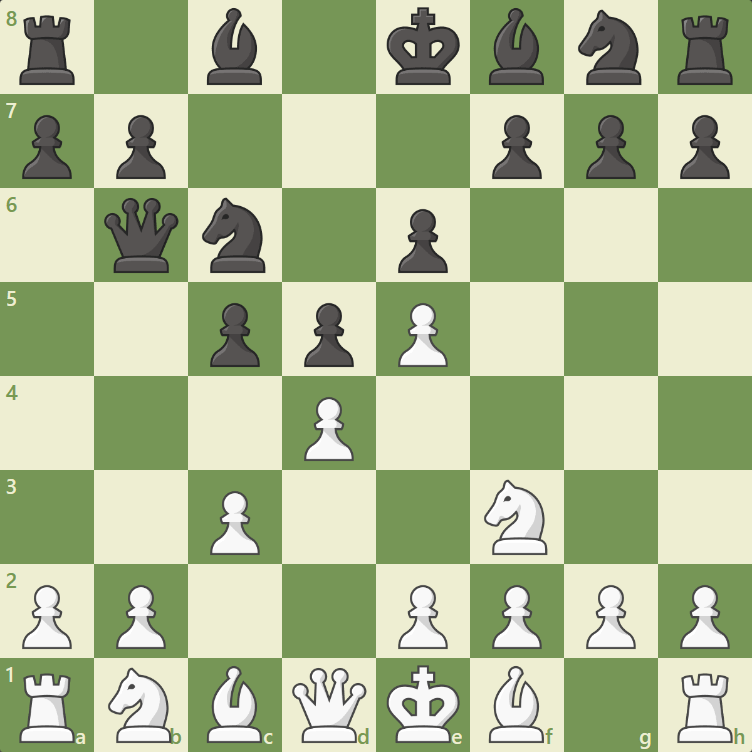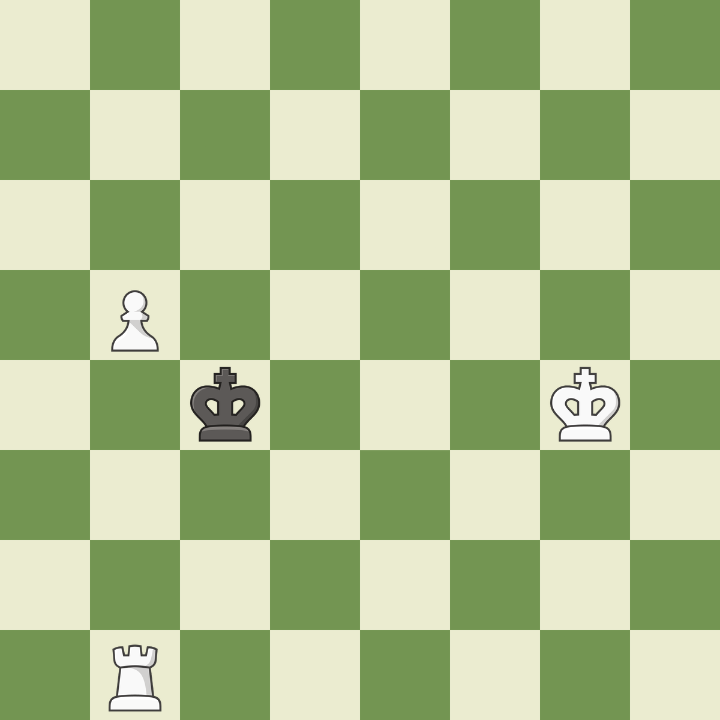Chapter 1: Psychology of a Pawn
Understanding the pawn is understanding the deeper lessons that chess and life wants to teach us.
“Have you ever played chess, Kitty?”
I eyed her. What did a board game have to do with this? “Not really.”
“You and I should play sometime. I think you would like it,” she said. “It’s a game of strategy, mostly. The strong pieces are in the back row, while the weak pieces—the pawns—are all in the front, ready to take the brunt of the attack. Because of their limited movement and vulnerability, most people underestimate them and only use them to protect the more powerful pieces. But when I play, I protect my pawns.”
“Why?” I said, not entirely sure where this conversation was going. “If they’re weak, then what’s the point?”
“They may be weak when the game begins, but their potential is remarkable. Most of the time, they’ll be taken by the other side and held captive until the end of the game. But if you’re careful—if you keep your eyes open and pay attention to what your opponent is doing, if you protect your pawns and they reach the other side of the board, do you know what happens then?”
I shook my head, and she smiled.
“Your pawn becomes a queen.” She touched my cheek, her fingers cold as ice. “Because they kept moving forward and triumphed against impossible odds, they become the most powerful piece in the game. Never forget that, all right? Never forget the potential one solitary pawn has to change the entire game.”
— Pawn by Aimee Carter
When I first started learning chess, pawns seemed kind of… unimpressive to me. Especially when there are bigger and better pieces. A queen that can map the whole board anytime she wants, rooks who traverse through the board, bishops who cover half of the board and are great for sneaky attacks and knights who really act as the knight in the shining armor by jumping over carefully constructed traps.
While a pawn can only move one square at a time (okay, two on their first move, but still). Other pieces have an exclusive presence and pawns are simply too many. Not a single pawn is special in the beginning. All of this makes a pawn seem rather insignificant. They are usually the first piece we’re willing to sacrifice without hesitation.
But as Philidor said, some 100 years ago, “Pawns are the soul of chess.” There must be a reason for that…
At the start of any game, pawns are the first pieces to move. They step forward to make space for the more powerful pieces behind them. With opening moves they clear the way for the strategy to unfold.
But as the game progresses their role shifts. Pawns are sacrificed to protect other pieces or to gain a positional advantage like opening file for the rook, lure an opponent’s piece into a vulnerable position or to simply clear the way for a more powerful piece.
In life, we all start out as pawns, trying to figure things out. In the start, there are too many of us, with no way to distinguish one from another. Bigger and better pieces exist who overshadow us. Until we start moving forward, one step at a time. Some pawns get strategic advantage at different stages of their life others get sacrificed and the very few rare ones, make it to the end and transform themselves into their ultimate potential.
Pawns have to adapt to situations. When a piece is blocking its path, it can’t simply push through. Instead, it captures diagonally, a side step that might allow it to keep moving forward, if it isn’t captured.
In life, we too have to side step when an obstacle is blocking our path.
Technically, pawns are the weakest, easy to capture and discard when they are isolated on the board. But when pawns work together, they form a chain of support that protects them from capture. Together they become a powerful force against far more stronger pieces.
Just like pawns, as much as we would like, none of us can achieve our greatest potential alone. We need the help and contribution from others.
The pawns that make it to the 8th row, they are often protected by a rook or queen from the back ranks. The rook and queen acts like a mentor and protector to the pawn. With the help of others, the pawn who was the smallest piece on the board reaches a stage where it has the power to become anything it desires.
The pawn's journey is not about flashy moves or dramatic gestures - it's about steady, deliberate progress, one move at a time.
Again, a human like ability. If you want to see your transformation, you can’t jump steps or pull a fancy card. You have to cover the distance with one step at a time.
The transformation here isn’t about money or success. There are many backdoors to it. What I want to emphasize is on the core transformation. Think of it as a journey from amateur to mastery. Mastery is the ultimate transformation for humans. No one can buy it, steal it or keep it. No one other than pawns have this ability to transform.
Once the pawn is transformed, it doesn’t mean the game is over. The pawn who has now turned to queen has more responsibilities now. It has to protect the remaining pieces and bring the enemy king to checkmate.
The pawn's promotion is often the climax of its journey, but its significance doesn't lie solely in the transformation itself, it lies in what it took to get there. The obstacles a pawn faces to reach the transformational stage — enemy pieces, strategic sacrifices, and the ever-present risk of being captured.
The most fascinating thing about pawns is unlike other pieces, it can never go back. It’s inability to move backwards is similar to the forward momentum of life. We cannot undo our past mistakes or relive our previous successes. We can only move forward.
The beauty of pawns lies in their simplicity and their complexity. Not every pawn transforms into a queen. Some pawns will sacrifice themselves to clear critical paths, and some will stand guard, protecting their fellow pieces until the very end.
Ultimately, it’s about moving forward, one move at a time, until we become what the game needs us to be.
That’s a wrap…
Thank your for reading the first issue of Chess Chapters.
About Chess Chapters
The idea of chess chapters is to document my learnings and insights about chess from a learner’s perspective. I am deep into psychology and love to philosophize things. So you might see chess more from a day dreamer’s POV rather than something strategic.
Maybe my approach will evolve as I continue to write and play.
Take care and have an amazing week,
Akanksha






Great read AP!